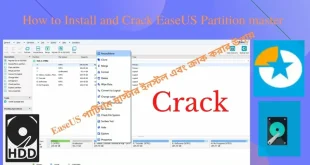A savings account is a cornerstone product of banking services, providing a secure place to store your earnings while also earning interest. It’s important to understand the nuances of savings accounts, especially as opening a digital bank account becomes more common. Being aware of the landscape and potential challenges is crucial in navigating this aspect of banking savings account.
This article will help you understand savings account fees and charges while focusing on seven common expenses that could affect your finances. Whether you’re a seasoned saver or just embarking on your financial journey, this guide aims to equip you with the knowledge needed to make informed decisions about your savings.
Saving Account Maintenance Charges
Savings accounts often incur account maintenance charges, which are fees levied for maintaining your account. These charges may vary depending on the type of account and the bank you’re associated with. It’s essential to review your bank’s fee structure to understand the account maintenance charges applicable to your savings account.
Saving Account Minimum Balance Requirement Penalties
Many banks impose minimum balance requirements on savings accounts. Falling below this threshold may result in penalties or charges. These penalties can vary based on factors such as the type of account and the bank’s policies. Regularly monitoring your account balance can help you avoid incurring these penalties.
Saving Account ATM Withdrawal Charges
While ATMs provide convenient access to funds, frequent withdrawals may come with associated charges. Banks often impose limits on the number of free withdrawals allowed per month, beyond which additional fees may apply. Being mindful of your ATM usage and opting for transactions within your bank’s network can help minimise these charges.
Fund Transfer Fees
Transferring funds between accounts held at different banks, also known as interbank fund transfers, may incur fees. These charges can vary depending on the transfer method and the banks involved. Exploring alternative transfer options or utilising digital payment platforms can help mitigate these expenses.
Chequebook Issuance Charges
Requesting a chequebook for your savings account typically incurs issuance charges. These fees may vary depending on factors such as the number of leaves requested and the bank’s policies. Considering your cheque usage frequency and exploring digital alternatives like online transfers can help reduce chequebook issuance charges.
SMS Alerts and Statement Charges
Many banks offer SMS alerts and periodic account statements to keep customers informed about their account activity. However, availing of these services may come with associated charges. Reviewing your bank’s communication fee structure and opting for electronic statements can help minimise these expenses.
Debit Card Annual Fees
Most savings accounts come with a complimentary debit card for easy access to funds. However, these debit cards may be subject to annual fees. These charges can vary based on factors such as the card type and associated benefits. Assessing your card usage and exploring card options with minimal or no annual fees can help save costs.
Conclusion
Understanding the common charges is paramount for informed financial management. As digital bank account opening gains momentum, individuals must be aware of various fees and charges to optimise their savings journey. By staying vigilant, exploring cost-effective alternatives, and leveraging digital banking solutions, individuals can mitigate the impact of these charges on their financial well-being. With knowledge and understanding, one can confidently begin their financial journey, steering away from unnecessary expenses and aiming for financial security and prosperity.
 Daily Blogger News Stay updated with the latest trends and insights. Your reliable source for daily updates and information.
Daily Blogger News Stay updated with the latest trends and insights. Your reliable source for daily updates and information.







